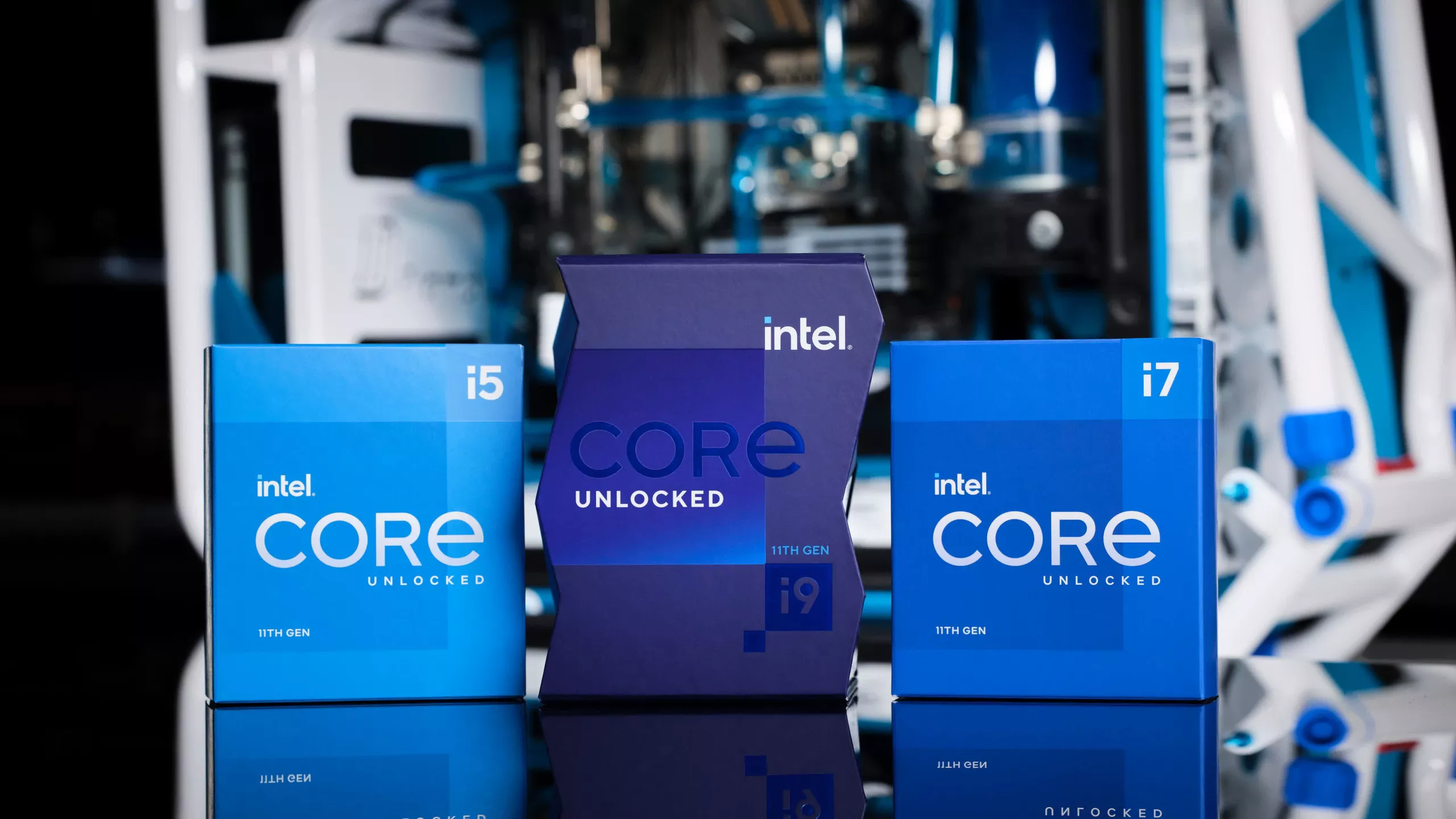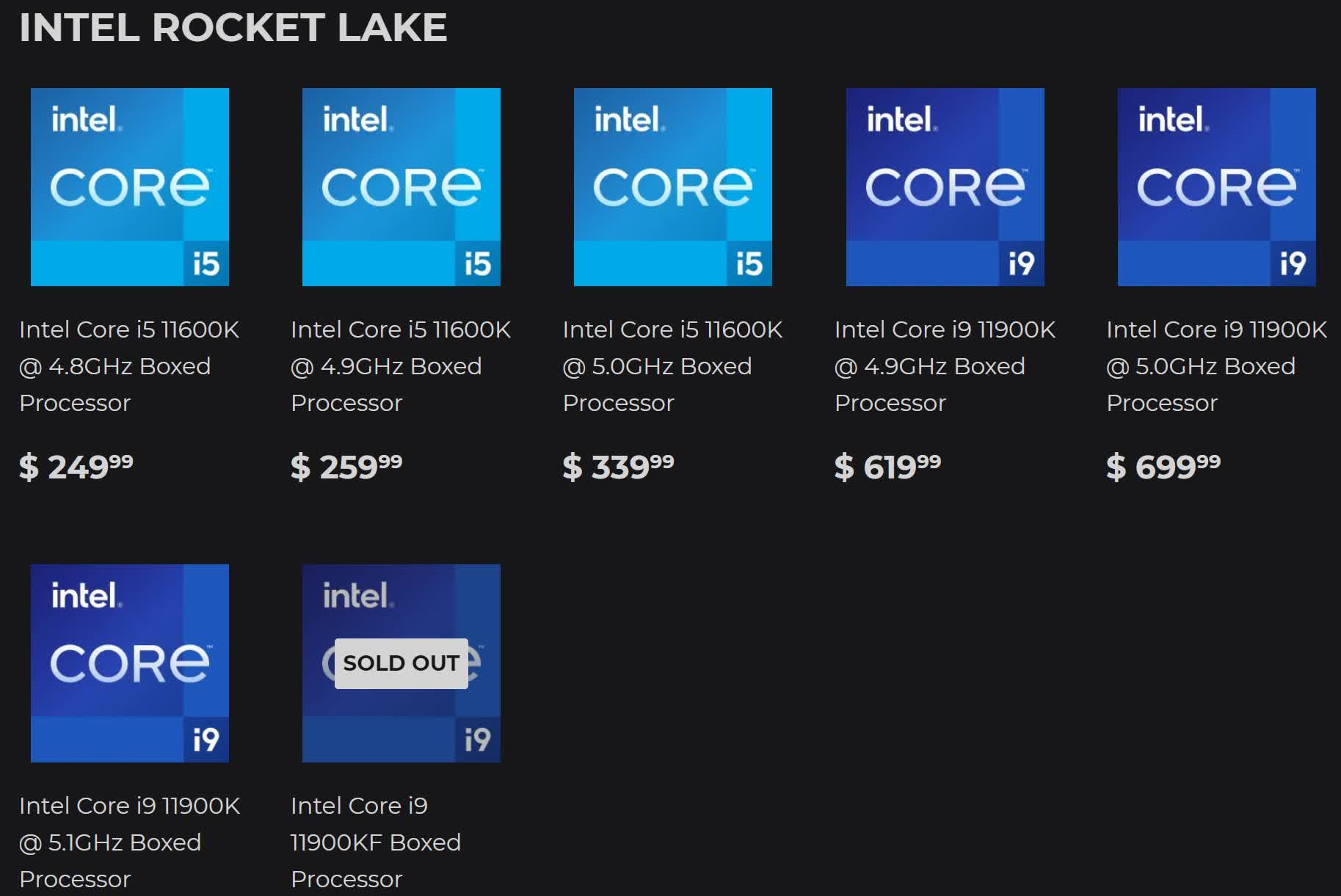What just happened? Intel’s Rocket Lake processors only arrived a few weeks ago, but many of the 11th-gen CPUs are seeing price reductions—a stark contrast to virtually every other tech product right now that’s feeling the global chip shortage’s effects.

Earlier this month, Intel’s Core i7-11700K, along with several 10th-gen CPUs, all saw price drops. That chip is currently only sold by third parties on Amazon at a price higher ($454) than the usual $420, though some Micro Center stores have a few left at $399.99. Note that the latter is in-store pickup only.
The non-K variant of the Core i7-11700 is available on Amazon, and at $339—down from its usual $370—as is the Intel Core i5-11600K, which is now $264.99 ($295 Amazon list price).
As noted by Tom’s Hardware, those who want a guaranteed overclock on their Rocket Lake chips should check out Silicon Lottery’s pre-binned CPUs. It’s selling a Core i9-11900K that comes with a 5.1 GHz boost clock across all eight of its cores for $879.99. That’s $340 more than the MSRP for a 6.2% higher all-core boost clock.

Silicon Lottery's offerings
Silicon Lottery also has a couple of Core i5-11600K CPUs selling under the $262 MSRP. One with a 4.9 GHz binned all-core boost is $259, while a 4.8 GHz variant is $249. Intel’s default boost for the chip is 4.6 GHz.
The pre-binned chips come with a one-year warranty that includes a one-time replacement for any defects or malfunctions that may develop over time.
Intel fans looking for what arguably are better bargains should check out the 10th-gen Comet Lake sales. The Core i7-10700KF (disabled integrated graphics), a joint ‘Best Gaming CPU’ winner in our Best CPUs feature, is just $294.49, while Micro Centre has the 'K' variant for $270. Elsewhere, the Core i5-10600K is $218 ($199 Micro Center).
Having its own fabs, which will soon be producing vehicle chips alongside CPUs, has helped Intel mitigate the global component shortage issues, though the mixed reception to Rocket Lake means demand isn’t exactly through the roof.
https://www.techspot.com/news/89351-intel-rocket-lake-prices-fall-pre-binned-chips.html